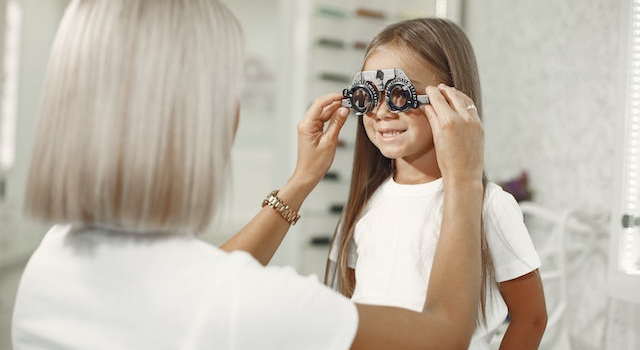
As a parent, ensuring your child's health and well-being is a top priority. One critical aspect of your child's overall health that you should never overlook is vision. Understanding pediatric eye care can help you safeguard your child's eye health. This includes knowing when to request eye exams, recognizing common vision problems in children, and choosing the right eyewear.
At Front Range Eye Health Center in Louisville, our eye doctors provide comprehensive pediatric eye care to ensure your child's vision is clear and healthy.
Why Pediatric Eye Care is Important
Children rely heavily on their vision for learning and interacting with the world around them. Approximately 80% of what children learn in school happens visually. Vision problems can significantly hinder a child's ability to perform well academically and socially.
Early detection and treatment of potential issues is crucial to prevent long-term complications and ensure your child reaches their full potential.
When to Request Eye Exams
Regular comprehensive eye exams are vital in maintaining your child's eye health. The American Optometric Association (AOA) recommends the following schedule for pediatric eye exams:
- Infants: First eye exam at six to 12 months old
- Toddlers: Second eye exam at three years old
- Preschoolers: Before starting school at around five or six years old
- School-Aged Children: Annual eye exams from ages six through 18
These exams are crucial in detecting and addressing vision problems early on, ensuring your child has the best start in life.
Common Vision Problems in Children
Children can experience a variety of vision problems, some of which include:
- Refractive Errors: These include nearsightedness (myopia), farsightedness (hyperopia), and astigmatism. Refractive errors cause blurred vision and can affect a child's ability to see clearly at different distances.
- Visual Processing Disorders: These disorders affect the brain's ability to interpret and use visual information, impacting reading, writing, and recognizing patterns. Examples include strabismus (crossed eyes) and amblyopia (lazy eye).
- Convergence Insufficiency: Difficulty focusing both eyes on a near object, leading to eye strain and double vision.
Signs Your Child Might Have Vision Problems
As a parent, it's important to be aware of the signs that your child might be experiencing vision problems. Some common indicators include:
- Squinting or closing one eye to see better
- Complaints of blurry or double vision
- Frequently rubbing eyes or experiencing headaches
- Holding reading materials very close or very far away
- Difficulty concentrating or sitting still
- Avoiding reading or other close-up activities
Choosing the Right Eyewear
If your child needs glasses, selecting the right pair is essential. Here are some tips for choosing kids glasses:
- Durability: Glasses need to withstand the rough and tumbles of childhood. Opt for frames made from durable materials like flexible plastics or metals, preferably with spring hinges.
- Comfort: Ensure the glasses fit well and are comfortable to wear. Frames should not pinch the nose or ears and should stay in place during activities.
- Style: Let your child choose a style they like. If they find their glasses appealing, they are more likely to wear them consistently.
- Lens Coatings: Consider lenses with an anti-reflective coating to reduce glare and protect against UV rays.
Request A Pediatric Eye Exam in Louisville
Regular eye exams, early detection of vision problems, and appropriate treatment are key to ensuring your child’s visual health and overall development. For tailored pediatric eye care tips, visit Front Range Eye Health Center in Louisville.
